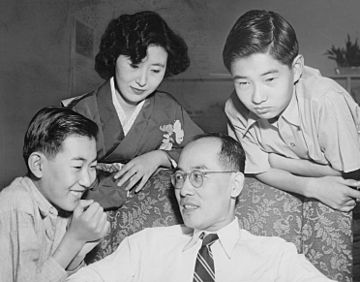
Hideki Yukawa (1907-1981) was the first Japanese Nobel laureate who won the Nobel Prize for physics in 1949. This recognition was a silver lining to the devastating second world war that destroyed Japan's cities. Yukawa inspired a whole new generation of children to look up to scientists.
Childhood
Hideki Yukawa was born on January 23 in Tokyo as Hideki Ogawa to a middle class Japanese family of academicians that belonged to the Samurai clan.
While he was not as outstanding a student as his older brothers, Hideki showed an aptitude for mathematics and the sciences.
When Hideki was 8 years old, the first world war broke out in which Japan participated in an alliance with Entente Powers. By the time war ended, Yukawa was already a teenager in Kyoto.
Yukawa's geologist father wanted him to become a mathematician. Hideki ditched that idea in high school after his teacher marked his exam answer incorrect when he proved a theorem in a different manner than the teacher expected.
Education
Yukawa graduated from Kyoto University at age 22 where he stayed on as a teacher for four years, until 1933. During this time, he also married Sumi Yukawa in accordance with Japanese customs.
Since his father-in-law had no sons, Hideki Ogawa was adopted by the Yukawa family and thereby a name change from Ogawa to Yukawa. The couple had two sons.
In 1933, Yukawa moved to Osaka University where he earned his doctorate in 1938, aged 31. He rejoined Kyoto University in 1939 as a professor of theoretical physics.
Major works
In 1935, during his time at Osaka University, Yukawa proposed a theory of nuclear forces in which he predicted the existence of a carrier particle of strong and weak interactions.
The particle's predicted mass was between that of the electron and that of the proton. It was named meson taken from mesos, the Greek word for intermediate.
Yukawa returned to Kyoto University in 1939 but could not continue his research work as the second world war broke out. One of Yukawa's younger brothers died in the war.
With most physicists working in applied projects for wartime necessities, Yukawa who grew up resenting the war, spent this time with his family.

Good news came after the war ended as Meson was discovered in 1947 in the cosmic radiation showers by British experimental physicist Cecil Frank Powell. Yukawa went on to be the first Japanese Nobel laureate in 1949.
In 1955, Hideki Yukawa signed the Russell–Einstein Manifesto, issued by British polymath Bertrand Russell calling for nuclear disarmament. Yukawa retired from Kyoto University in 1970 as a Professor Emeritus.
Nobel laureate Yukawa, who survived two world wars, became an inspiration for modern Japan. Since his victory, 20 Japanese nationals have won Nobel Prize in the sciences. In 1977, Yukawa was awarded Order of the Rising Sun, one of the highest honors in Japan.






 Physics, astronomy and science history blog for students
Physics, astronomy and science history blog for students
Responsive Ad Slot